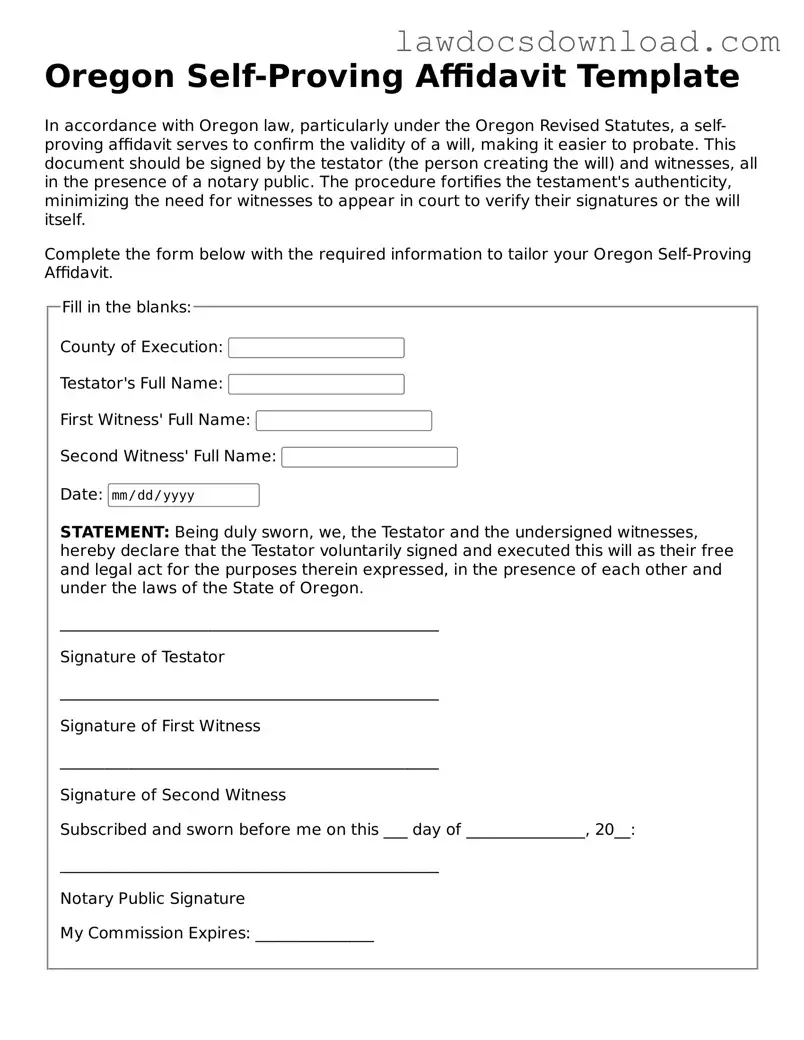The Oregon Self-Proving Affidavit form is similar to the Last Will and Testament in that both are essential documents for estate planning. Just like a Last Will outlines how someone wants their assets divided after death, the Self-Proving Affidavit accompanying a Will simplifies the probate process. It acts as a testament that the Will was signed in the presence of witnesses, making it easier to validate the Will without needing those witnesses to testify in court.
Another document similar to the Self-Proving Affidavit is the Power of Attorney (POA). Both involve legal forethought and designate authority to another party. While a POA grants someone the power to make decisions on your behalf while you're alive, the Self-Proving Affidavit helps confirm the authenticity of your will after you've passed.
Similarly, the Advance Directive is like the Self-Proving Affidavit in that both are preparations for the future. An Advance Directive outlines your wishes for medical treatment if you're unable to communicate, while the Self-Proving Affidavit certifies your will's legitimacy, ensuring your estate wishes are known and respected.
The Trust Agreement shares similarities with the Self-Proving Affidavit because both deal with managing assets. A Trust Agreement specifies how your assets should be handled and distributed during and after your life, whereas the Self-Proving Affidavit helps confirm that your will, potentially including the establishment of a trust, is valid and was executed according to legal standards.
Likewise, a Transfer on Death Deed, which automatically transfers property ownership upon death without going through probate, is akin to the Self-Proving Affidavit. Both streamline the process of transferring assets after death, though they serve different functions in estate planning.
The Healthcare Proxy is in the same family as the Self-Proving Affidavit because it involves making crucial decisions ahead of time. By appointing a healthcare agent, you ensure your medical care wishes are followed if you cannot make decisions yourself. The Self-Proving Affidavit similarly ensures your will is recognized as valid, facilitating the execution of your estate wishes.
Similarly, a Beneficiary Designation Form—used to name who will receive assets from retirement accounts, life insurance policies, etc.—parallels the Self-Proving Affidavit's role in estate planning. Both ensure your assets are distributed according to your wishes, with the Affidavit specifically bolstering the validity of your will's instructions.
Finally, the Declaration of Guardianship, specifying your choice of guardian for minor children or yourself if incapacitated, is related to the Self-Proving Affidavit. Each document is a precautionary measure, securing the well-being of loved ones and the respect of your last wishes. The Affidavit supports your will's authenticity, ensuring those wishes are upheld with less legal friction.

